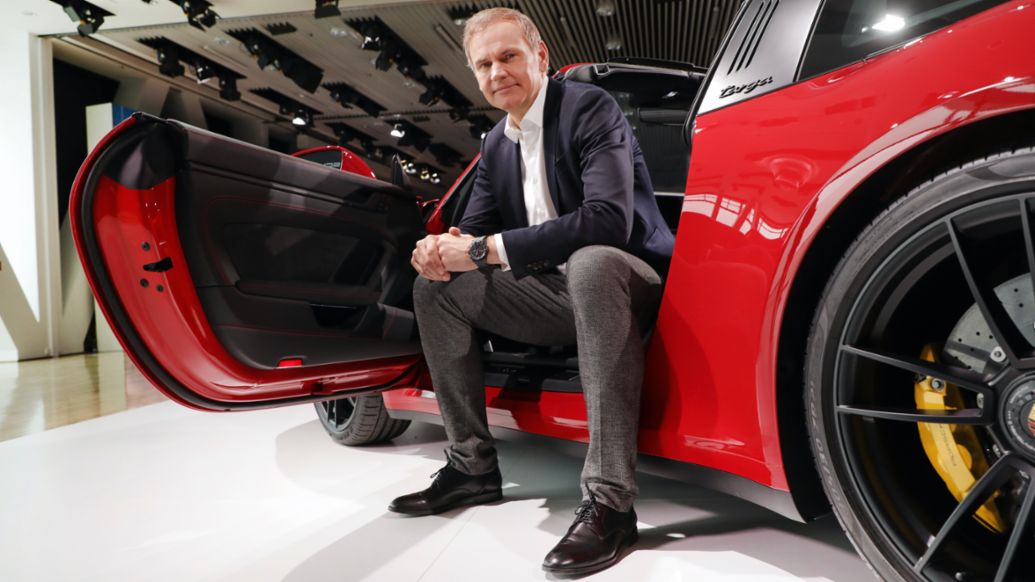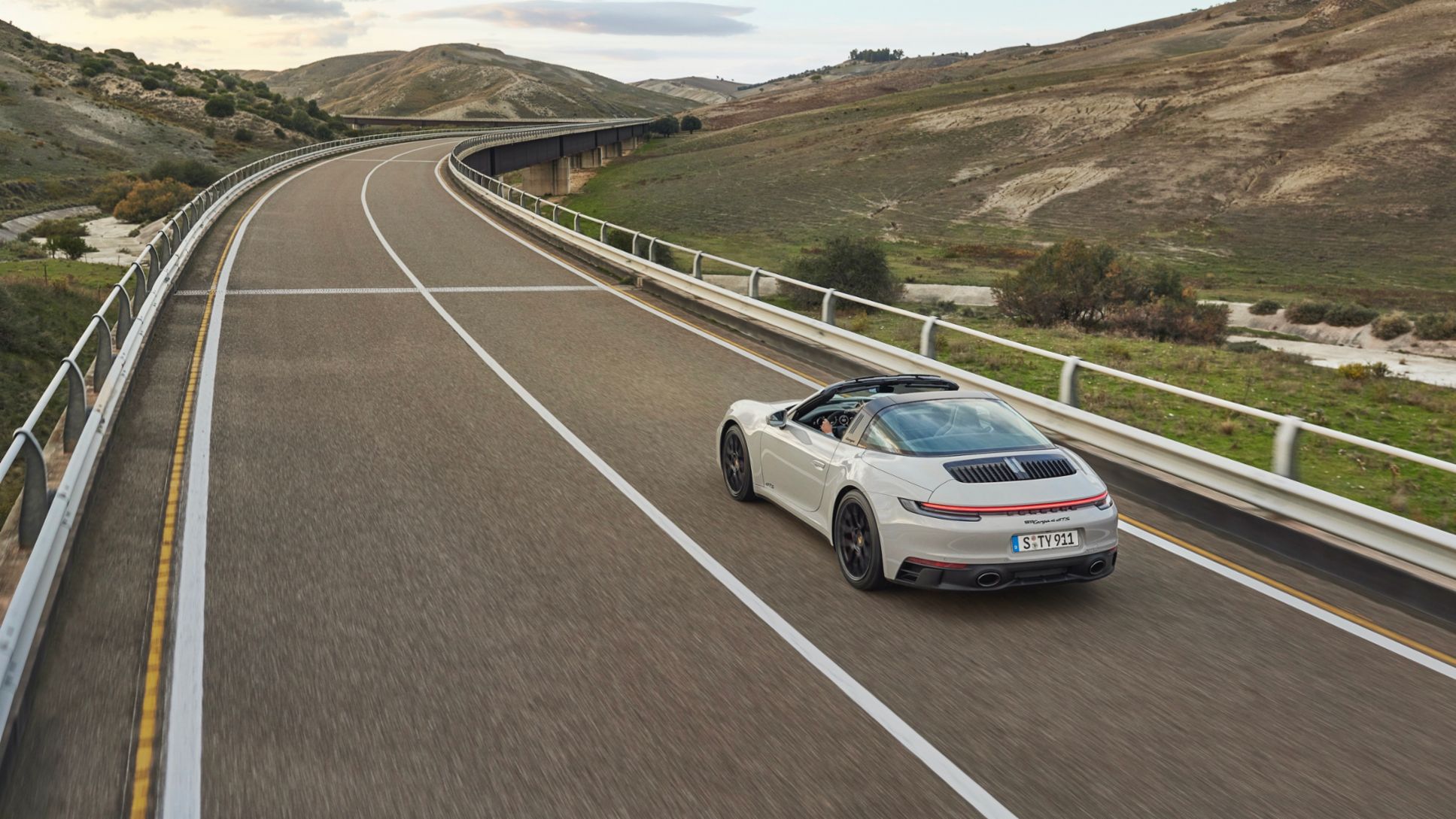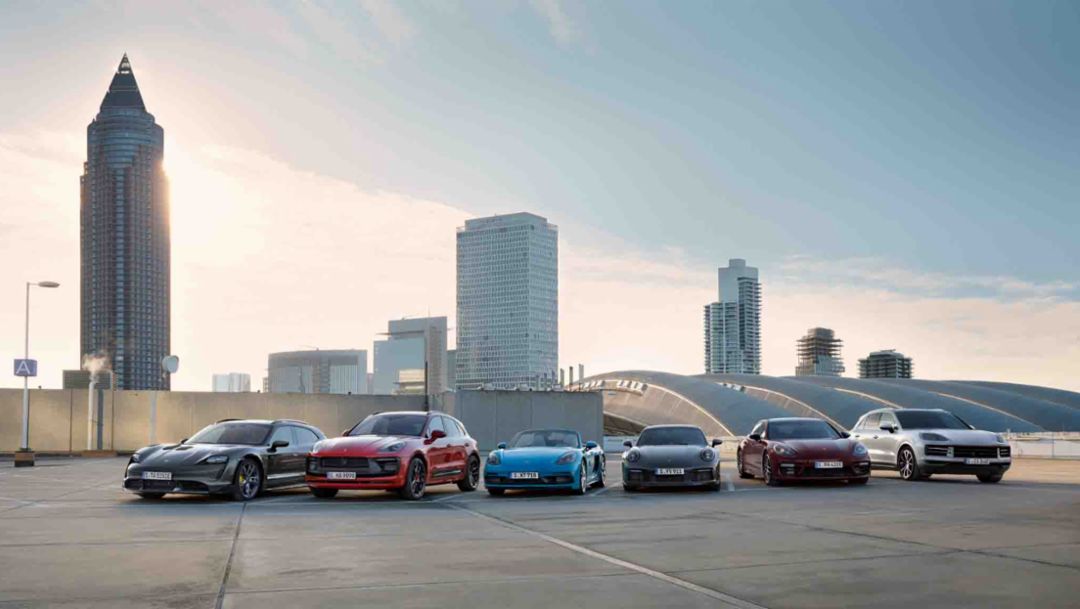Sales revenues rose by 14.0 per cent to 20.43 billion euros. The operating profit rose by 10.7 per cent to 3.85 billion euros. The Group operating return on sales ended the first half-year at 18.9 per cent – and thus in the upper range of the target corridor of 17 to 19 per cent. Automotive net cash flow declined slightly to 2.22 billion euros (previous year: 2.39 billion euros) due to extensive investment in products and innovations. Due to heightened investment activity in ongoing operations and temporarily higher inventory, the net cash flow margin for the automotive segment came in at 11.7 per cent (previous year: 14.5 per cent). Deliveries to customers rose by 14.7 per cent to 167,354 cars in the first six months of 2023.
On the right track
Chairman of the Executive Board Oliver Blume is optimistic in view of the half-year results: “Once again we have posted successful figures while investing extensively in our future at the same time. This demonstrates our uncompromising commitment to our strategy. The feedback from our customers and our results demonstrate that we’re on the right track.”

Lutz Meschke, Deputy Chairman of the Executive Board and Board Member for Finance and IT, praises the Porsche team for its performance in the first six months of the year: “We’re proud of the results that we have achieved in this challenging environment. The increase in sales and profits are due primarily to higher sales with stable pricing. It’s been an outstanding team effort,” says Meschke. “Group operating profit rose by almost 11 per cent despite higher costs compared to last year. The increased costs were due in part to the inflationary environment, intensified sales activities relating to the launch of the new Porsche Cayenne, digitalization and our increased motorsport engagement.”
The global economic situation remains tense. Efforts to secure supply chains and parts availability, general rising costs and various geopolitical tensions continue to pose challenges for Porsche AG. Nevertheless, Porsche confirms its forecast for the full year of 2023, provided that the global economic and supply chain situation does not worsen significantly. At the end of the full year 2023, Porsche expects a Group operating return on sales in the range of 17 to 19 per cent. This forecast includes assumed Group sales revenues ranging from 40 to 42 billion euros. “Despite the global challenges, we are investing extensively in our development, in innovations and the entire Porsche ecosystem for future products and services. We are resolute in our endeavour to move ahead with our strategy of modern sporty luxury,” emphasises CFO Lutz Meschke.
The financial services division Porsche Financial Services (PFS) continued its steady growth in the first six months of the year: sales revenue rose to 1.65 billion euros (previous year: 1.62 billion euros). PFS’s operating profit declined to 147 million euros (previous year: 216 million euros). The decrease was largely due to the measurement of interest rate hedges as well as lower releases in the area of loan loss provisions.
|
Porsche AG Group |
H1 2023 |
H1 2022 |
Change |
|
Sales revenue |
€20.43 billion |
€17.92 billion |
+14.0% |
| Operating profit |
€3.85 billion |
€3.48 billion |
+10.7% |
| Operating return on sales |
18.9% |
19,4% |
|
| Automotive net cash flow |
€2.22 billion |
€2.39 billion |
-7.2% |
|
Deliveries to customers |
167,354 |
145,860 |
+14.7% |
Disclaimer
This press release contains forward-looking statements and information that reflect Dr. Ing. h.c. F. Porsche AG's current views about future events. These statements are subject to many risks, uncertainties, and assumptions. They are based on assumptions relating to the development of the economic, political, and legal environment in individual countries, economic regions, and markets, and in particular for the automotive industry, which we have made on the basis of the information available to us and which we consider to be realistic at the time of publication. If any of these risks and uncertainties materializes or if the assumptions underlying any of the forward-looking statements prove to be incorrect, the actual results may be materially different from those Porsche AG expresses or implies by such statements. Forward-looking statements in this press release are based solely on the circumstances at the date of publication.
We do not update forward-looking statements retrospectively. Such statements are valid on the date of publication and can be superseded.
This information does not constitute an offer to exchange or sell or an offer to exchange or buy any securities.


